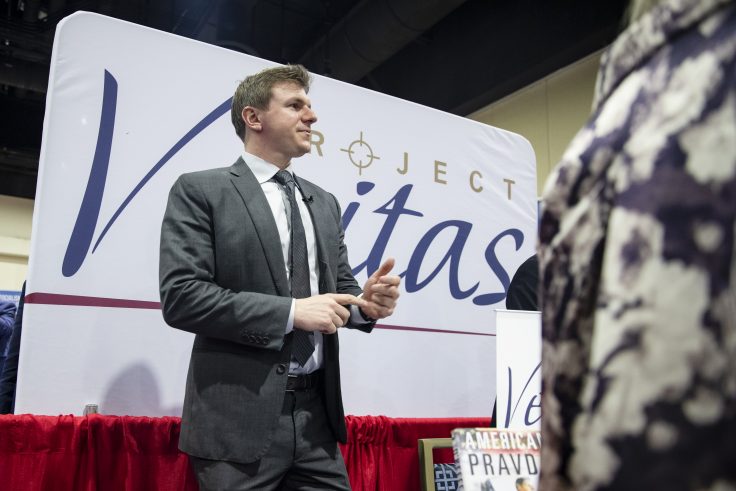Twitter suspended a well-known conservative provocateur Thursday, the latest in a series of decisions that many on the right see as a concerted effort by the social media platform to censor dissenting voices.
James O’Keefe, the founder of investigative site Project Veritas, was suspended shortly after posting a video of a CNN director describing his work as "propaganda" and boasting that the network "got Trump out." Twitter claimed O’Keefe was suspended for "platform manipulation and spam," a vague allegation O’Keefe denies.
The ban comes as a growing number of politicians have called for increased government regulation of social media sites. Many Republicans are calling for changes to the laws that govern what content social media sites can bar from their platforms. Recent suspensions of conservative accounts have convinced many Republicans that Twitter’s rules are a cover for ideologically motivated bans.
Twitter recently simplified its rules, explaining that they had been "long, complex, and rarely visible in our product." But the rules do little to explain certain violations. The rule against platform manipulation and spam, which O’Keefe allegedly violated, reads only, "You may not use Twitter’s services in a way designed to artificially amplify or suppress information or engage in behavior that manipulates or disrupts people’s experience on Twitter." Twitter did not explain how O'Keefe had violated this policy.
Twitter and Facebook often use their privacy standards to justify censoring news stories. Journalist Jason Whitlock was locked out of his Twitter account on April 9 after criticizing a Black Lives Matter founder following a New York Post story about her ritzy house. Facebook has prevented users from sharing links to that story on its Messenger app. Both platforms claimed they were protecting private citizens from harassment.
But neither social media site is consistent in the application of these standards. A quick search reveals Twitter allows the posting of full addresses of other private citizens, including an Army sergeant recently charged with assault. His family was forced to move after a mob gathered outside their home. Videos posted by protesters outside their home celebrating as the family escapes have been retweeted thousands of times. Facebook allows users to share multiple stories describing the precise locations of the homes of private individuals.
Some Twitter users have found themselves banned without even a vague explanation. California Republican Party chairwoman Jessica Millan Patterson was locked out of her Twitter account Monday morning due to suspicious activity. Despite filing appeals, Patterson has not been told what that activity was or been allowed to log back into her account.
Twitter told the Washington Free Beacon, "Our teams enforce our rules using a combination of human review and technology."
Under the guise of public safety, Twitter has banned groups with specific political leanings. In January, Twitter updated its coordinated harmful activity policy and kicked off roughly 150,000 accounts for sharing "Q-Anon associated content." The platform did not outline what constituted Q-Anon associated content.
The QAnon ban swept up many accounts that did not appear to support the conspiracy theory. Although Twitter has maintained it uses a five-strike rule for determining when accounts should be permanently suspended, some of the suspended accounts say they received no warning before their suspensions.
Some researchers worry the QAnon bans may lead to more radicalization. Although the dynamics of online radicalization are often unclear, one study found that when platforms deplatform radical groups, they limit their reach but may further radicalize group members.
